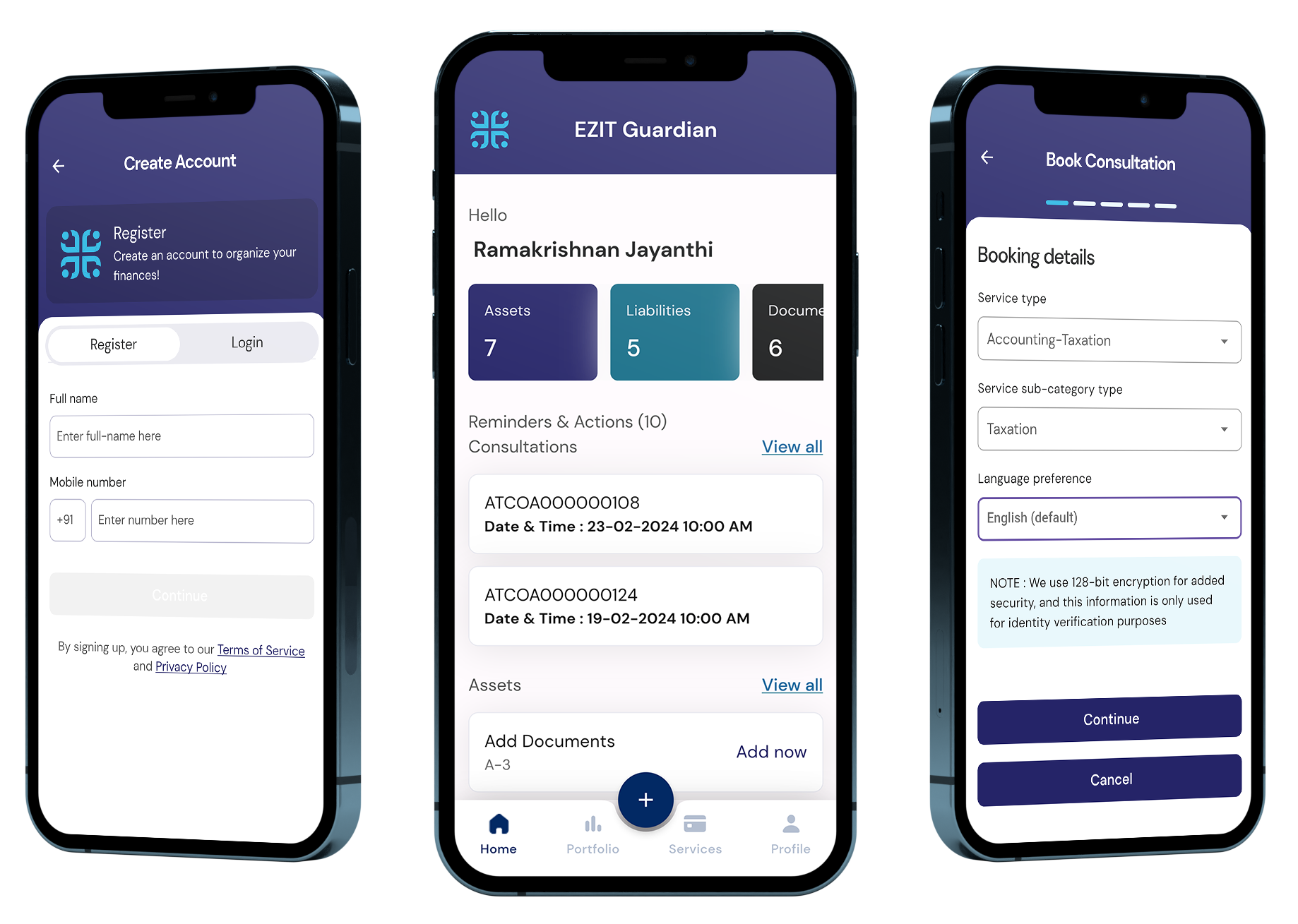TL;DR
Writing a will is important, but choosing the right type can be confusing. Joint wills, where two or more people document their wishes in a single document, have benefits but may not be suitable for everyone. This guide explains joint wills in India, their advantages, potential downsides, and alternatives, to help you make an informed decision about your estate planning.
Introduction
Estate planning is important for ensuring your family’s future, but understanding the different options can be confusing. One option that some people consider is a joint will, where two or more individuals, usually spouses, outline their wishes about how their assets should be distributed after their deaths in a single document. While joint wills have certain advantages, they may not be the best choice for everyone. This guide covers joint wills in India, their benefits, drawbacks, and alternatives, helping you make a more informed decision about your estate planning.
What is a Joint Will?
A joint will is a single legal document that states the wishes of two or more people, usually spouses, about how their assets should be distributed after their deaths. In India, joint wills are not specifically recognized by law, but they are used by some couples for estate planning. It is important to know that while joint wills are an option, they come with specific considerations.
How Does a Joint Will Work?
When making a joint will, both parties agree on how their assets will be distributed after they die. The process typically involves:
- Deciding on Asset Distribution: Both parties agree on who will inherit their assets.
- Drafting the Will Document: The will is written, detailing how the assets should be distributed.
- Signing the Will in the Presence of Witnesses: Both parties must sign the will in front of two witnesses.
Often, a joint will becomes unchangeable after one of the individuals dies unless it was stated otherwise in the will. This means that the surviving individual cannot change the terms of the will even if circumstances change later. This lack of flexibility is a key point to consider when deciding if a joint will is right for you.
Who Can Make a Joint Will?
In India, any two or more people who are of sound mind and over 18 years old can make a joint will. Joint wills are often made by:
- Married Couples: To ensure their shared wishes are followed.
- Domestic Partners: Who want a single document covering both parties.
- Business Partners: Who want to specify the distribution of business assets.
Both parties must have the legal capacity to make a will and must do so voluntarily. It’s important to think about whether this joint approach fits your individual needs and circumstances.
Process of Creating a Joint Will
Creating a joint will involves several steps:
- Discuss and Agree on Asset Distribution: Both parties must agree on how their assets will be divided.
- List All Assets and Beneficiaries: Clearly list all assets and who will receive them.
- Consult a Legal Professional: Seek advice to ensure the will meets legal requirements.
- Draft the Will Document: A legal professional drafts the document based on your wishes.
- Sign the Will in the Presence of Two Witnesses: Both parties sign the will, along with two witnesses.
- Register the Will (Optional but Recommended): Registering the will is not required but can provide additional legal validity.
Unlike individual wills, a joint will requires both parties to agree on all terms and sign the document together. This requirement for mutual agreement can be a strength but also a potential source of conflict.
Benefits of a Joint Will
Joint wills can have several benefits:
- Simplicity: One document covers the wishes of both parties, reducing paperwork.
- Unity: Reflects a couple’s shared intentions and decisions.
- Potential Cost Savings: May be less expensive than creating two separate wills.
- Mutual Agreement: Ensures both parties are aware of and agree to the estate plan.
These benefits can make joint wills appealing, especially for couples with simple estates and shared goals.
Potential Drawbacks of a Joint Will
However, joint wills also have significant drawbacks:
- Lack of Flexibility: Once one person passes away, the will usually cannot be changed, which can be a problem if circumstances change.
- Potential Conflicts: Can lead to disputes among beneficiaries if one party’s intentions were not clear.
- Complications in Remarriage: May create issues if the surviving spouse remarries and wants to change the estate plan.
- Legal Uncertainties: Not specifically recognized under Indian law, which could lead to legal challenges.
- Difficulty Adapting to Changed Circumstances: Changes in life, such as new children, assets, or debts, can make it hard to follow the joint will.
- Unintended Consequences: The surviving spouse may not be able to adjust the will to new circumstances, causing unintended outcomes.
These drawbacks show why joint wills may not be suitable for everyone, despite their simplicity.
Tax Implications of Joint Wills in India
In India, there is currently no inheritance tax, but joint wills can have other financial effects:
- Capital Gains Tax: May apply when beneficiaries sell inherited assets.
- Income from Inherited Assets: This income may be taxable under certain conditions.
- Stamp Duty: Payable on the probate of wills, including joint wills.
It’s important to consult a tax professional for advice on your specific situation, as tax laws can be complex and change over time.
Who Should Consider a Joint Will?
Joint wills might be a good option for:
- Couples with Simple Estates: Those with straightforward assets and shared intentions.
- Those Who Want Assurance: To ensure neither party changes the will after one’s death.
- Couples Without Children from Previous Relationships: Where the estate plan is simple and there are no other dependents.
However, given the potential drawbacks, many legal experts suggest being cautious when considering joint wills. It’s essential to evaluate your specific situation carefully.
Alternatives to Joint Wills
There are several alternatives to joint wills that may offer better flexibility and protection:
- Individual Wills: Separate wills for each person, allowing for individual changes.
- Mirror Wills: Similar but separate wills for couples that reflect each other’s wishes.
- Mutual Wills: Separate wills with a contract not to change them after one party’s death.
- Living Trusts: Can manage assets during life and after death, providing more control and avoiding probate.
Each option has its benefits and should be considered based on individual circumstances. It’s often helpful to discuss these alternatives with a legal professional.
Legal Considerations in India
When thinking about a joint will in India, remember:
- Lack of Explicit Legal Recognition: Joint wills are not specifically recognized in Indian law but are not illegal either.
- Compliance with the Indian Succession Act, 1925: The will must meet all requirements of this act.
- Registration: Registering the will is not required but can provide additional legal validity and reduce disputes.
- Potential for Disputes: Courts may interpret joint wills differently, which can lead to potential disputes.
These legal points underline the importance of seeking professional advice when thinking about a joint will.
Common Misconceptions About Joint Wills
Here are some common misunderstandings about joint wills:
- Myth: Joint Wills are Always Binding.
Fact: Joint wills can be challenged in court, especially if they are not clearly written or if one person was pressured. - Myth: Joint Wills Prevent Family Disputes
Fact: Joint wills can sometimes increase the chance of conflicts if they are not clearly understood or agreed upon by all parties. - Myth: Joint Wills are the Same as Mutual Wills
Fact: Mutual wills involve a separate contract not to change the will after one person’s death, while joint wills are a single document covering both parties’ wishes. - Myth: Joint Wills are Simpler and Cheaper
Fact: While they may initially seem simpler, joint wills can lead to complications and higher costs in the long run, especially if disputes arise.
Conclusion
While joint wills may seem like a straightforward option for couples, they have risks and limitations. In most cases, separate wills or other estate planning tools offer better protection and flexibility.
Key points to remember:
- Joint wills can lack flexibility and lead to complications.
- They’re not specifically recognized under Indian law.
- Alternatives like individual wills or trusts often provide better solutions.
- Professional legal and financial advice is crucial for effective estate planning.
Consider your specific circumstances, discuss options with your partner, and consult with legal and financial experts to make the best choice for your estate plan. The goal is to create a plan that provides peace of mind and security for your loved ones.
How EZIT Guardian Can Assist
At EZIT Guardian, we understand the complexities of estate planning. We offer expert support tailored to your unique needs:
- Will creation: Individual or joint will drafting services
- Estate planning consultation: Personalized advice on the best approach for you
- Legal guidance: Ensure compliance with Indian laws
- Regular reviews: Keep your estate plan updated as circumstances change
- Document management: Secure storage and management of your legal documents
We’re here to help you make informed decisions about your estate planning. Contact EZIT Guardian today for professional guidance tailored to your needs. Download the EZIT Guardian app from the Google Play Store & App Store today to schedule a consultation and take the first step towards securing your legacy.


